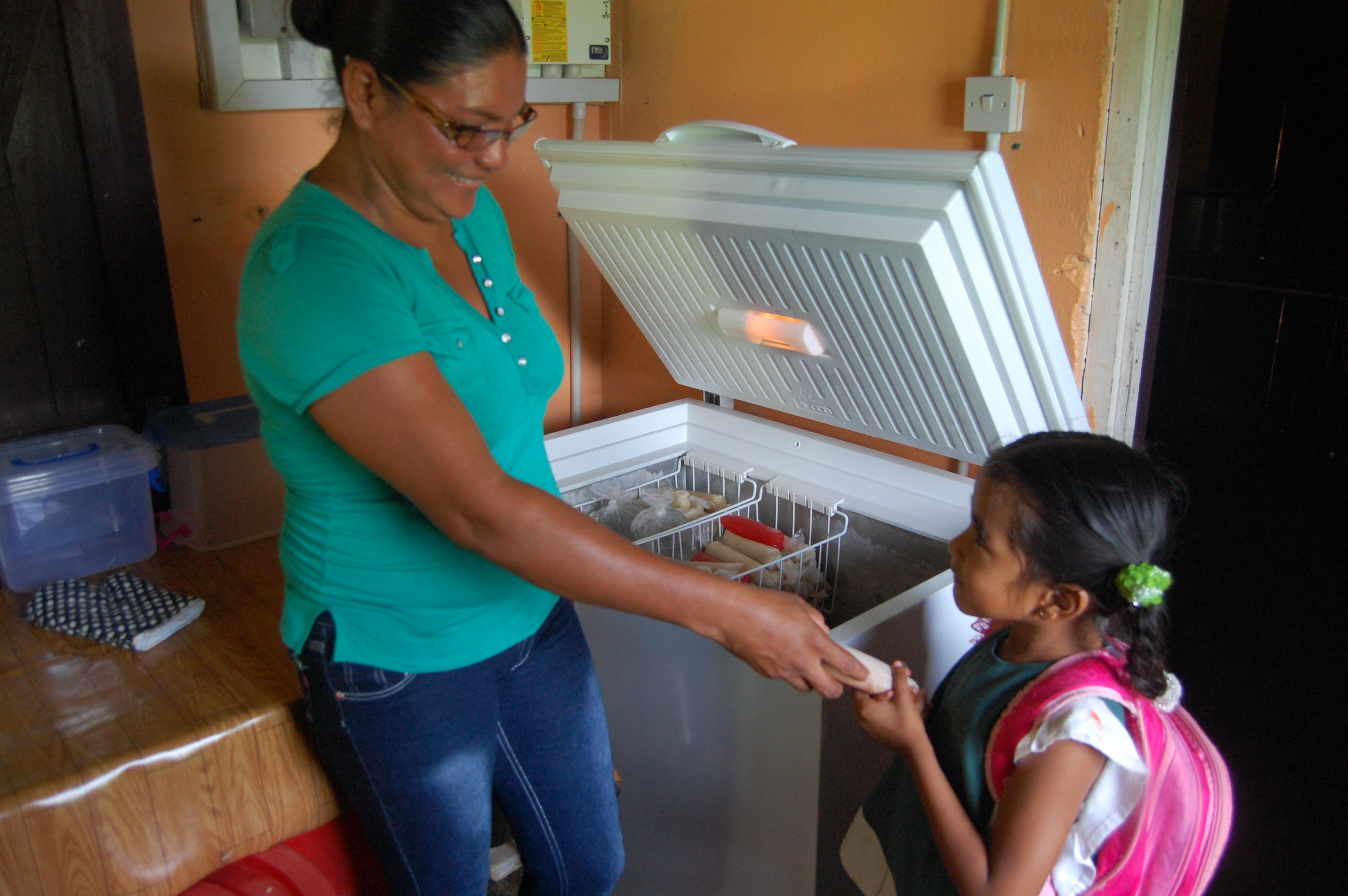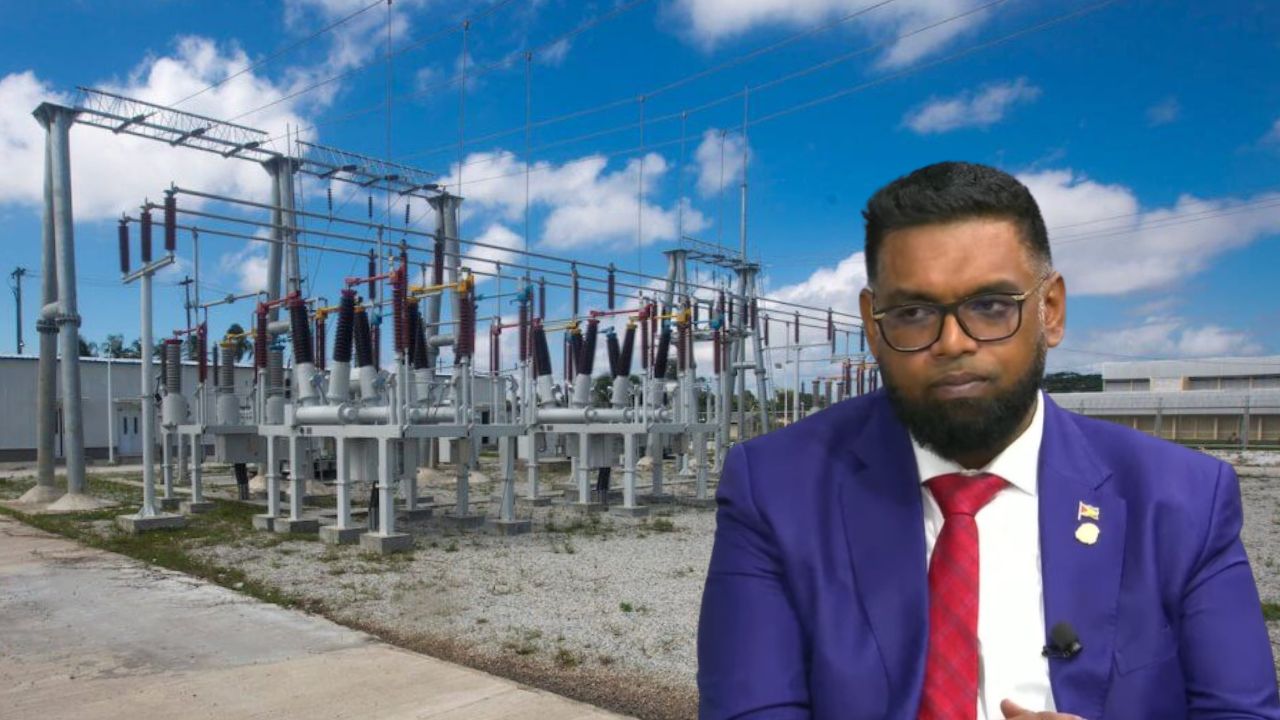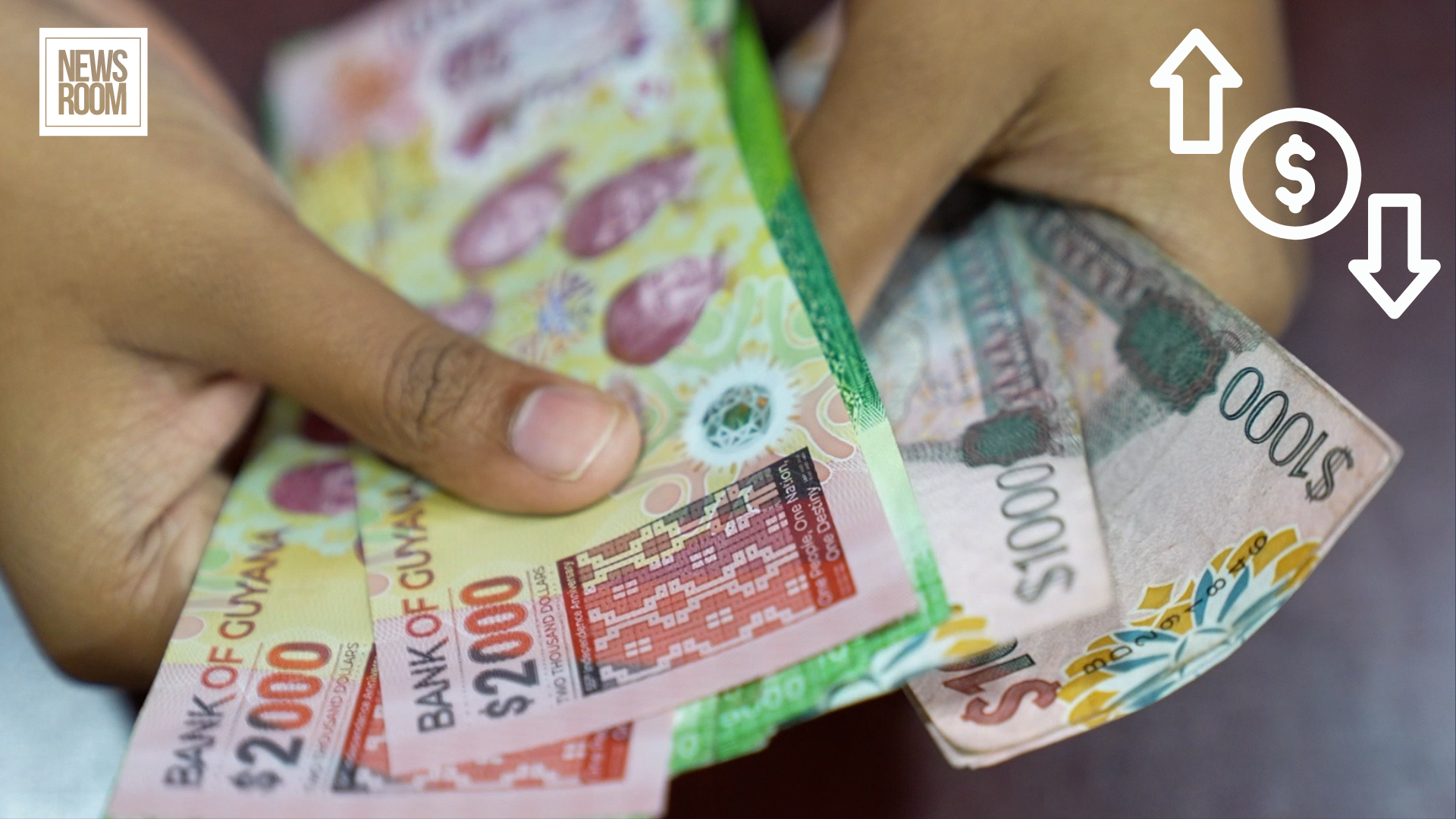Ms. Joan Stevens has been able to expand her business in the rural community of Shulinab in South Central Rupununi, Region 9, to sell icicles, custard, cool down and other items which require a refrigerator.
Ms. Stevens is in charge of the ‘Hot Meals’ programme and Snackette in the Amerindian Community also known as ‘Macushi Village.’
The community was one of the beneficiaries of the ‘Corporate Social Responsibility Renewable Energy Project’ being funded by the Canadian Government through the Latin American Energy Organization.
Located on the main South Savannah Road about 35 miles south of Lethem and about 12 miles south-east of Parikwarinawa village, the community received four solar PV systems totalling 1960 Watts Peak, six solar powered freezers, two energy efficient wood stoves and two solar dryers under the project.
According to the Guyana Energy Agency (GEA) which provided technical support to the Organisation, “based on the assessment conducted it was realized that there was need for refrigerators to store meat, processed fruits and perishable items for the ‘hot meals’ programme that benefitted about 36 students on a daily basis.”
Given that one of the village’s main economic activity is fruit processing, the need for energy efficient dryers and stoves was also recommended.
With a population of 775 persons, Shulinab’s primary economic activities are fishing, tourism, livestock, fruit processing and craft.
The GEA recently returned to the Village and shared the reviews received.
Ms. Stevens related to the team that “Since we received it we have been able to add items to the list of things we sell. We now offer icicles, custard, cool down and ice.” She added that the group was also able to “… offer meat balls and patties as we now have somewhere to store the meat,” and further employ three other women as their profit doubled.
“Prior to receiving the PV system and freezer we use to make 20-25 thousand dollars in profit per month now we make 45-50 thousand per month”, she said proudly. Further, in order to generate even more income, they have recently used some of the profit they made to “….add a stationary section to the canteen”.

Stevens said they are looking to employ another woman skilled in pastry making, as the business expands.
Stepping over to the village office, which also serves as the meat centre, Mr. Calvan Josey who operates the Centre, had a similar account as that of Ms. Stevens. He indicated that the Village Council had 200 heads of cattle while the village had about 600.
Expressing how much the village has benefitted from the PV system and freezer that the office received he explained that “…before we use to slaughter once a month…so villagers only got fresh meat once a month”. He further explained that whatever meat was left back they would have to pickle or salt.
According to Mr. Josey, since the installation of the PV system and freezer, they recorded sales totalling “one million and forty-three thousand dollars”.

Meanwhile, the women’s group who received two solar freezers, a solar PV system, two energy efficient cook stoves and two solar dryers indicated that though they have used the freezers for storage of ice, icicle and beverage, in October when the fruits that they process are in season, they will commence full use of the items they have received.
Energy Engineer Brian Constantine, GEA’s representative on the project, explained that part of the sustainability component of the project includes each group is required to pay a subscription fee of 1$15,000 per month to the Village Council.
“This fee will be used to sustain the equipment that village has received. Therefore, should any repairs be needed for either the PV systems or Refrigerators the Council will have money to facilitate those repairs”, he explained.
The Latin American Energy Organization (OLADE) Energy Project seeks to implement pilot/demonstration sustainable energy initiatives in three rural communities in Guyana.
The other communities are Powaikoru (Region 1) and Moraikobai (Region 5).
Funded by the Canadian Government, the project, titled ‘Corporate Social Responsibility Renewable Energy Project’, seeks to enhance and accelerate productivity in the rural areas.
The pilot projects were defined based on the communities’ requirements (Demand-driven) with a focus on generating new income as a condition for sustainability.
It is hoped that the projects would foster interest and support from Guyana’s private sector in replicating, advancing and/or expanding the project (s) based on the outcomes and experiences.






